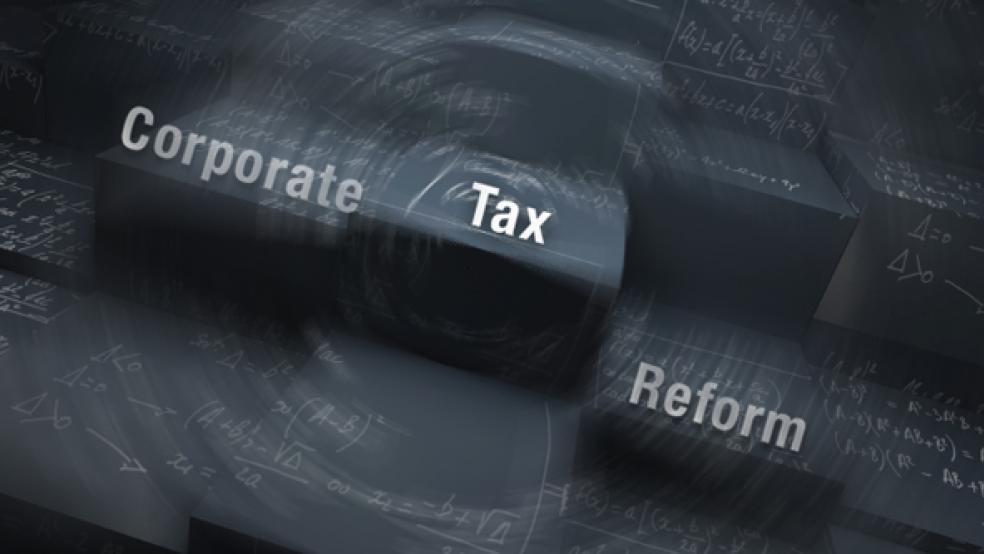Nobody expects great things from Congress for the remainder of the year, but there are stirrings, both from the legislative branch and the White House, suggesting there might be room for agreement on corporate tax reform.
In remarks prepared for delivery to the National Association of Business Economists on Tuesday, Jason Furman, the chair of President Obama’s Council of Economic Advisers, said the White House supports “the transition to a reformed business tax system – a step that would also benefit the economy in both the short- and long-run.”
Related: Tax Breaks 2013 – A $63 Billion Boon to Business
The inter-party tensions on Capitol Hill have made cooperation on most issues practically impossible in recent years, but Furman said that the White House believes that on the issue of corporate tax reform, the two parties have some common ground.
“I think there is certainly a reduced legislative appetite in this particular year,” he conceded. “But we look at something like business tax reform, and over time I think we’ve seen an increase in convergence in terms of what the rate is, how you would pay for that rate, and even certain commonalities when it comes to more controversial areas, like how to deal with overseas earnings and taxation of foreign subsidiaries.”
The U.S. currently has the highest corporate tax rate, at 35 percent, of any major industrialized country. However, few businesses actually pay at that effective rate. Various loopholes and tax avoidance vehicles enable many major corporations to dramatically reduce, and in some cases eliminate, their tax liability.
The White House has proposed a plan that would slash the corporate tax rate to 28 percent while eliminating loopholes and rationalizing the treatment of income earned overseas.
Related: GOP Plan Cuts Top Tax Rate, Adds Surcharge to Top Earners
Furman’s remarks came just a day after several media organizations got an advance look at a tax reform proposal that Rep. Dave Camp, the Republican chairman of the House Ways and Means Committee, will release tomorrow.
Camp’s proposal would rewrite the tax code entirely, but his core plan regarding corporate taxes is not far from what the administration has proposed. In Camp’s vision, the corporate tax rate would drop to 25 percent from 35 percent.
Some have criticized Camp’s timing, primarily on political grounds. The release of a tax reform proposal, in which some constituencies will win and others will lose during an election year will force candidates to take positions that they might prefer to avoid until after votes are counted. Also, Camp is term-limited out of his chairmanship of Ways and Means after this year, meaning he won’t be running the committee after next January in the likely event that wholesale tax reform isn’t completed this year.
The chances for reform appeared to grow stronger earlier this month when Sen. Ron Wyden (D-OR), who recently took over as chairman of the Senate Finance Committee, said he had assurances from the Congressional Budget Office that its non-partisan budget analysts would consider pro-growth elements of a tax reform package as revenue-generating.
Related: Tax Reform Is Dead Until a New President Is Elected
If Wyden is correct, it removes a major impediment to agreement between the two parties, allowing Democrats to make proposals that raise tax revenue without needing Republicans to agree to a hike in tax rates.
In an op-ed in the Wall Street Journal today, former Republican Senator Phil Gramm and American Enterprise Institute Visiting Scholar Mike Solon said Wyden’s announcement was cause for optimism about tax reform in general.
“Tax reform that fueled economic growth and federal revenue growth,” they wrote, “could be a catalyst for other reforms that could bring back the American economy we once knew and took for granted.”
On Tuesday afternoon, Senate Minority Leader Mitch McConnell said that tax reform would not get through the Senate this year. According to the Associated Press, McConnell said he objects to the idea that the tax code could be rewritten in a way that generates more revenue for the federal government.
As minority leader, McConnell’s power in the Senate is limited, but he has been highly successful in blocking proposals he disagrees via filibuster.
Top Reads from The Fiscal Times:





